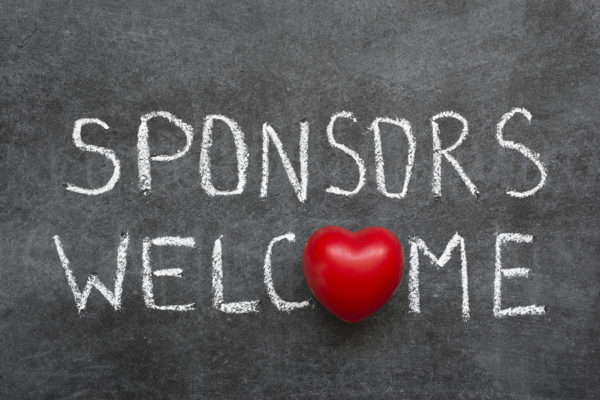(Steve Holmes)
Part 2: Your involvement
Remember that your association with a type of event will potentially impact how people in your local community assess the image of your practice. It can have a lasting impact.
In part 1 we asked if it was your intension to establish a new event or to become involved with an existing event, there are benefits associated with both approaches, lets explore them.
Features of each approach are outlined below:
New event |
|
| Advantages | Disadvantages |
|
|
Existing event |
|
| Advantages | Disadvantages |
|
|
Step 6: Determine your level of involvement
It is critical that you are ‘actively involved’ in both planning, coordinating and running an event. This allows you to better understand and leverage the benefits of the sponsorship opportunity.
While there is no one hard and fast measurement to determine your level of involvement, the following needs to be considered by you:
- Number of hours contributed in planning and coordinating
- Actual tasks performed by the planner in relation to the event
- Assessing thoroughness and detail in sponsorship applications
- Assessing outcomes from previous years events
Step 7: Define benefits and opportunities
There are often a number of benefits and opportunities associated with sponsorship activities and arrangements. Below are a few of the popular benefits and opportunities; this list is by no means exhaustive, but is a starting point to get you thinking about possible outcomes and benefits for your practice.
All benefits and opportunities must be negotiated directly between the practice and the charity/sports club or team.
Once you have defined and selected your preferred opportunities for your practice be sure to communicate this to your supported organisation so they are clear about what it is you are trying to achieve and can assist you with your efforts.
1. Networking opportunities
- Networking with charity/sports club or team board members and/or the organising committee for the event
- Networking with people who attend the event
- Networking with members or supporters of the charity/sports club or team.
- Naming rights
- Naming rights to an event is a significant benefit for the practice. It helps to associate the practice with the charitable activity, has connotations of ownership and assists with raising the profile of the practice because each time the event is mentioned so is the practice name.
The method used will largely depend on the event objectives for the practice, and the flexibility the practice has in negotiating naming rights with the charity/sports club or team.
- Proactive Public Relations
- Assists the practice to build its profile in the local community in a planned and organised fashion, generally from credible sources.
- The advantage of Public Relations is that is very cheap i.e. it is generally free
- The disadvantage of Public Relations is that it can be very difficult to get coverage of an event in the local media
- Practices in regional areas have historically had more success at generating Public Relations coverage in their local communities compared to Capital city-based practices.
Hint: leverage any media contacts you or people associated with the charity may have to improve your chances of getting coverage through local media.
- Speech
- At almost all events there is an opportunity for a planner from the practice to give a speech
- This is an excellent opportunity to promote the practice’s reasons for supporting/creating the event, promoting practice services and offerings and communicating/engaging with attendees of the event
Hint: Develop an audio logo to help you succinctly and effectively communicate key points you want your audience to remember.
- Advertising
- Advertising can be an effective method of encouraging people to attend the event, as well as brand building and promoting your relationship to the charity
- Types of advertising can include print, radio, television online advertising and of-course social media.
- Vehicles for communicating your message may include the local paper, community publications, letters from the charity, letters to your existing clients, club newsletters, local radio, local TV, Facebook and community based websites (e.g. council website)
- Ensure any advertising meets branding, compliance and legal requirements.
Hint: You may be able to negotiate with the charity or other sponsors to contribute to the cost of advertising.
Ensure any advertising features your logo prominently and/or practice name to maximise exposure for your practice.
- Possible Lead generation
- Getting access to prospects via the event is a clear benefit of being involved with sponsorship activities
- Getting access to the list of attendees at the event will assist with follow-up access (via thank-you letters or telephone calls)
- Have a compelling offer as to why people should use your services
Hint: Have a method by which people can leave their names and contact details if they are interested in your services.
- Distributing corporate brochures and/or business cards will assist clients in contacting you post the event.
- Have a tracking mechanism in place to track the number of leads that your event creates (in many cases it may be difficult to directly measure cause and effect)
- It can often take a number of years of being associated with the same charity and event for leads to generate (it takes time to build trust and close relationships). Planners who are involved in events on a one-off basis may need a very compelling offer or well thought out strategy to generate leads.
- Relationship building with existing clients and professional contacts
- Many practices view sponsorship activities as an excellent opportunity to build and strengthen relationships with existing clients and professional contacts.
- Events may be used as a brand building exercise, or practices may invite key clients to events as part of their service offering.
- Communicating to your existing clients your involvement in the event can help generate feelings of goodwill and positively position your practice in your clients’ minds.
- Continuity (in terms of involvement with the event and with the charity)
- Relationships take time to nurture, develop and grow. Many practices reap rewards from being involved with the same event and charity over a continuous period, often well over 12 months.
- Brand building
- Sponsorships can assist practices with raising the general level of awareness of the local community of the practice brand.
- Practice brand image can also be affected and influenced by being involved in an event. It is therefore critical to assess how your involvement with the organisation and type of event will influence people’s perceptions of your practice. Do these perceptions align with your brand values and identity?
- Have you considered how you will promote your involvement in the sponsorship activity to your existing clients?
Step 8: Planning and promoting the event
Careful planning of the event is critical to its ultimate success. Generally planning a large event is a task that is beyond any one person to organise; establishing an organising committee can assist with delegating tasks and assigning responsibilities among many people. People from your practice, the charity and members of the general public may be happy to sit on the committee. Ultimately one person should be responsible for coordinating people assigned to certain tasks to ensure that planning and preparations are running according to schedule.
The nature and detail required at the planning stage will largely depend on the type of event held, the number of people on the organising committee and whether the event is new or existing.
Some things to consider at the planning phase:
- Timing of the event is important. Will the event be more successful during a particular season? Are there any date clashes with other significant events, either locally or nationally?
- Which venue is most appropriate? Is it available on your suggested event date? Is it accessible? Does it have an appropriate atmosphere?
- Is catering required? How much will catering cost?
- Audio-visual support. Is this required? Can the venue make this available or does it need to be externally rented/hired?
- What is the most appropriate method(s) for encouraging people to attend? Options include letters, television or radio, telephone calls, word of mouth, online and social media advertising, editorials and other Public Relations activity (including an event launch pre-event).
- Who is responsible for meeting costs associated with running the event?
- Will a speaker be required for the evening (can be a good drawcard to encourage people to attend)? Does anyone involved with the event have contacts with people who may be able to perform this role (assists with minimising costs)?





